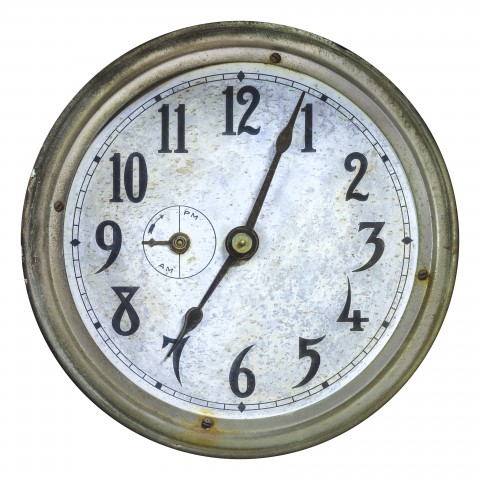
Human beings are excellent at noticing patterns.
Have you ever seen shapes in the clouds, or noticed “faces” in electrical sockets? That’s your subconscious pattern-matching system working around the clock.
That said, if you went and looked at some text in, say, Waray-Waray (a language of the Philippines), you’d probably give up trying to understand it after a short while. In Romanian, though, you start noticing patterns. For example, you may see words that look an awful lot like words in English (or other European languages you might be familiar with).
That effect becomes ten times more powerful when you can compare each Romanian sentence structure and pattern to an English translation. You start to quickly see where the languages match up, and also where they differ. Just fifty sentences in Romanian with English translations are enough to teach you the basics of Romanian syntax patterns.
And then all you’ve got to do is learn a little more vocab. Then you come back to these patterns, or any other, and start using your new vocabulary in these familiar molds to create beautiful, correct, and idiomatic Romanian every time. Let’s get started!
 Table of Contents
Table of Contents
- Simple “To Be” Sentences in Romanian
- Adding an Adjective
- I Want it All
- Everything You Need
- Lightning Round: Questions
- Polite Requests
- Skip Forgiveness, Ask for Permission
- Find Out About the World
- Telling Time in Romanian
- Locations and Positions
- Conclusion
1. Simple “To Be” Sentences in Romanian

Romanian is unique among Romance languages when it comes to the humble verb a fi (“to be”).
While in Spanish, people wrestle with two verbs meaning “to be a thing” and “to be a state,” Romanian learners don’t have to deal with that at all. But there are still two verbs (kind of)!
The word este is the third person singular of a fi (equivalent to “he/she/it is”), but you can also shorten it to e if you wish. This is relatively informal and used quite often in ordinary spoken Romanian.
Let’s see how it works in these Romanian sentence examples!
- Sunt profesor.
“I am a teacher.”
- David e doctorul meu.
“David is my doctor.”
- Aceasta este noua mea cameră.
“This is my new camera.”
- Fericirea este relativă.
“Happiness is relative.”
- Noul nostru președinte a fost cântăreț.
“Our new president was a singer.”
Like German, the commonly used Romanian past tense form is a compound that maps closer to “has been” than “was,” at least in form. In function, though, it’s definitely still the preterite!
2. Adding an Adjective

In Romanian, we can use the same este and e to describe things in terms of what adjectives they are or aren’t. Romanian adjectives agree with nouns in number and gender, so when you have a plural noun, your adjective becomes plural as well. Don’t worry about that now—you’ll pick it up fast, and today you should just be looking at the word order of these basic Romanian sentences.
- Mașina dumneavoastră este roșie.
“Your car is red.”
- Puloverele mele sunt mici.
“My sweaters are tiny.”
Also note in this section that the pronoun goes after the noun to show possession.
- Ceasul acesta e defect.
“This clock is broken.”
- Ultimul său album a fost cu adevărat uimitor.
“Her last album was really amazing.”
- Exercițiul zilnic este un obicei bun.
“Daily exercise is a good habit.”
Note in that last sentence that obicei bun is using the typical Romanian adjective order of noun+adjective. Although it’s a masculine noun and you can’t tell, the adjective is agreeing in number and gender here as well.
3. I Want it All

You’re definitely going to need this sentence pattern when you travel to Romania. The verb a vrea is the same as a dori, and they both mean “want.” Let’s see some examples of how each one is used in a Romanian sentence.
- Vreau apă.
“I want water.”
- Ei vor taxe mai mari.
“They want higher taxes.”
Generally, you might use a dori in more formal situations or when you want to speak more politely.
- Dorim o masă lângă fereastră.
“We want a table near the window.”
- Aș dori să plec chiar acum.
“I would like to leave right now.”
- Vreau tot ce nu pot avea.
“I want everything that I can’t have.”
4. Everything You Need

Again, there are two identical forms of the same basic verb in Romanian, both commonly used. Can you figure out which one is literally the equivalent of “I have need of” and which one is “I need?”
- Trebuie să beau ceva.
“I need a drink.”
- Trebuie să te calmezi.
“You need to calm down.”
- Chiar trebuie să merg la culcare devreme.
“I really need to go to sleep early.”
- Nu avem nevoie de banii tăi.
“We don’t need your money.”
- Această țară are nevoie de cineva care să ne poată conduce.
“This country needs someone who can lead us.”
5. Lightning Round: Questions

Let’s do a real quick review of the vocabulary we’ve seen in these sentences so far, and at the same time practice making questions in Romanian. In essence, you just swap the subject and verb—but you can also keep them in the same order and use a question intonation, similar to what you would do in English.
- Aveți nevoie de bani?
“Do you need money?”
By the way, this one is the “have need of” form. Did you get it right?
- Ce vrei?
“What do you want?”
- Mașina ta este roșie?
“Is your car red?”
- Ești scriitor?
“Are you a writer?”
- Ce culoare are mașina ta?
“What color is your car?”
6. Polite Requests
“Please” in Romanian is vă rog or te rog (formal and informal respectively), but just like in English, we can use different forms of verbs to show politeness. After all, that’s exactly what we always do with “can” and “could.”
- Vă rugăm să vă îndepărtați de mașină.
“Please step away from the car.”
- Vrei să-mi răspunzi?
“Would you please answer me?”
- Ai putea să-mi mai dai o șansă?
“Could you give me another chance?”
- Poți să-mi aduci telefonul?
“Could you bring me my phone?”
- Vrei să mă duci la aeroport mâine?
“Would you drive me to the airport tomorrow?”
7. Skip Forgiveness, Ask for Permission
You’re about to see the little word să pop up all over the place. Here, it’s part of the set phrase pot să? (“may I?”). It’s very useful, and definitely the kind of thing you can apply to all sorts of casual and formal situations! Let’s see how it looks in a few Romanian language sentences:
- Pot să intru?
“May I come in?”
- Pot să iau asta?
“May I have this?”
- Pot să te sărut?
“May I kiss you?”
- Pot să vin mâine târziu la serviciu?
“Can I come late to work tomorrow?”
- Pot să preiau contul?
“Can I take over the account?”
8. Find Out About the World
When you’re traveling in Romania, you’ll gain a lot of favor if you can manage to be open and genuinely curious about the world. Whether they speak good English or not, people are likely to appreciate your efforts to speak Romanian, so why not do it all the time with questions like these?
- Ce este asta?
“What is this?”
- Care este numele dumneavoastră?
“What is your name?”
- La ce restaurant am fost săptămâna trecută?
“Which restaurant did we go to last week?”
- Ce film este acesta?
“What film is this?”
- Ce carte citești?
“What book are you reading?”
9. Telling Time in Romanian

Saying the hour in Romanian is super-easy, since all you have to do is use the cardinal number after the word ora (“hour”). The verb “it’s” for telling time works exactly like it does in English!
- E ora două.
“It’s two o’clock.”
- E aproape ora trei.
“It’s almost three o’clock.”
- Vom ajunge la ora șapte.
“We’ll arrive at seven o’clock.”
- Trebuia să plec la ora patru.
“I was supposed to leave at four o’clock.”
- Te rog să mă trezești la ora opt.
“Please wake me up at eight o’clock.”
10. Locations and Positions

Like other European languages, Romanian has a complete array of prepositions. You can clearly see here the cognate în, perhaps the easiest of all to remember. Here are some Romanian phrases and sentences:
- Mașina mea se află în fața casei mele.
“My car is in front of my house.”
- Cheile tale sunt în poșetă.
“Your keys are in your purse.”
- Casele noastre se află pe același drum.
“Our houses are on the same road.”
Did you notice how the phrase se află showed up in this sentence (and the first one in the section)? Using that, you can make a guess that the meaning is something like “to stand” or “to be located,” much like how we’d use those words in English to describe big things like buildings or cars.
- El nu a reușit să treacă peste râu.
“He couldn’t get over the river.”
- Câte stele sunt deasupra noastră?
“How many stars are above us?”
11. Conclusion
In this article, you’ve seen several dozen sentences and quite a few general sentence patterns.
But go back and look more carefully (perhaps after a couple of days to get the memories to sink in faster), and you’ll probably be able to notice some patterns that we didn’t even mention specifically.
Building that kind of focus and curious mindset is a huge advantage when it comes to learning Romanian or any other language.
And say, what’s the best place online to see tons of Romanian words, sentences, and phrases right next to their English counterparts for easy translation? You already know—it’s RomanianPod101.com!
Each vocabulary lesson has an example sentence with its English translation; this way, you can not only see the Romanian word in context, but also start picking up on more and more Romanian sentence patterns.
That’s not even mentioning the goldmine of audio and video resources, all in one place! Try it out today and see how fast you can pick up the beautiful Romanian language!
Before you go, let us know in the comments how many of these sentence patterns are new to you. Did we answer all of your Romanian sentence pattern questions? We look forward to hearing from you!










